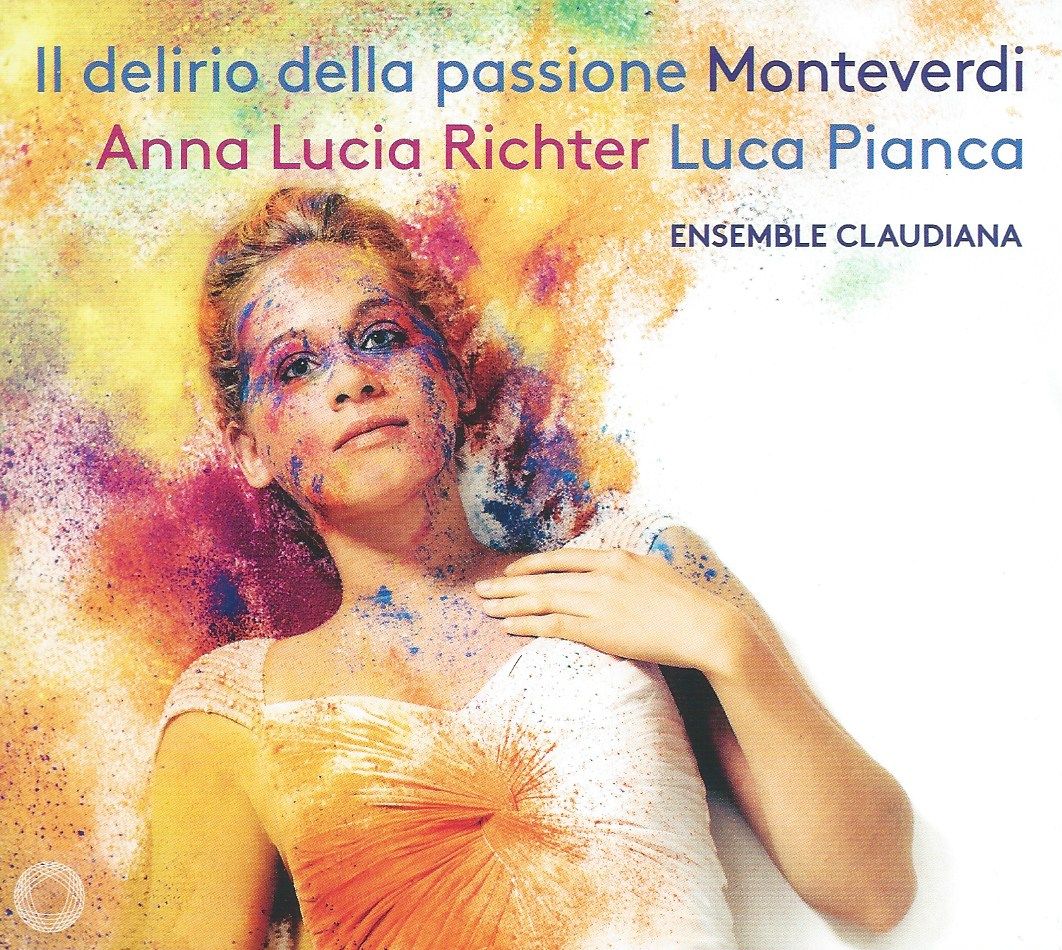Il delirio della passione: Anna Lucia Richter sings Monteverdi
This disc would be the ideal for an introduction to the music of Monteverdi. No fusty history lesson of a disc, it is a vibrant, muscologically-informed celebration of the Master

Amongst other things coming up later this week, we will have a complete set of Beethoven Piano Sonatas (Daniel Barenboim's latest, on DG). But let's start with some fabulous Monteverdi.
This is actually Anna Lucia Richter's second disc for Pentatone (the first was a disc of Schubert Lieder entitled Heimweh). It was recorded in early January 2020; shortly afterwards, of course, pandemic struck. From her first experiences of Monteverdi as she came out of College as Musica and Euridice in Sasha Waltz's production with the Freiburger Barockorchester, Richter was smitten. Here a soprano (now a mezzo!) her voice has a glorious substance - and joy, as the Prologue to Monteverdi's 1607 L'Orfeo proves (and just listen to the virtuoity of Ensemble Claudiana under Luca Pianca):
This disc would be the ideal for an introduction to the music of Monteverdi, a pioneer of opera as well as master of the madrigal. This is no fusty history lesson of a disc: it is a vibrant, muscologically-informed celebration of the Master. The dancing rhythms of Zefiro torna ("Zephyrus returns," from the 1632 Scherzi Musicali) act as a prolongation of the joy afforded by L'Orfeo; here, Richter is joined (not for the last time) by counter-tenor Dimitri Sinkovsky, who also doubles as a period-instument violinist on the disc.
Right at the centre of the disc is the Lamento d'Arianna, the only surviving fragment of Monteverdi's opera of that name. However, the libretto by Ottavio Rinuccini survives, and Richter worked on this with the Italian language expert Serea Malcangi - a collaboration made possible thanks to the Borletti-Buitoni Trust, of which she is an artist. In addition, Luca Pianca has fashioned instrumental intermezzi sourced from existing madrigals, which give the listener space to process Ariadne's amotions. The sheer emotional power of the opening "Lasciatemi morire" (Let me die) is remarkable:
Richter's performance is gripping from first to last; the tenderness of Pur ti miro (I behold you, from the opera L'incoronazione di Poppea) seems at once the ideal prolongation of the Lamento d'Arianna, and the perfect balm. It is in Pur ti miro where the vocal combination of Richter and Sinkovsly comes absolutely into its own:
The Lamento della Ninfa from Monteverdi's Eighth Book of Madrigals (1638, the Madrigali Guerrieri et Amorosi: madrigals of love and war) is the significant piece that balances Arianna. Luca Pianca decribes it as "a sort of delirium," while reflecting also on its inbuilt voyeurism: three male voices (Ciro Aroni, Teo Aroni and Alessandro Ravasio) comment externally, like a Greek chorus. Monteverdi's daring in stripping the music down to its bare essentials to reflect the lament is extraordinary, as is Richter's expression:
Arguably, Monteverdi's writing in the Lamento is as powerful, if not more so, than that in Arianna.
Lovely to have the Confetibor tibi Domine (I acknowledge you, O Lord) here of 1641 to represent Monteverdi's sacred music. The buoyancy of the rhythms speak of the joy of belief; the piece also includes some glorious chromaticism, and to hear Pianca's contributions to the continuo is joy itself:
Two canzonettas from the 1624 Quarto Scherzo delle ariose vaghezze conclude this fascinating, beautiful, immaculately planned disc. I want to quote Si dolce è il tormento (How sweet is the torment) to highlight the superb cornetto of Andrea Inghisciano, who acts as a second voice, cerating a blissful duet (and who shines also in the final item, Ohimè ch'io cado):
A beautiful, life-enhancing disc of the very first order.
